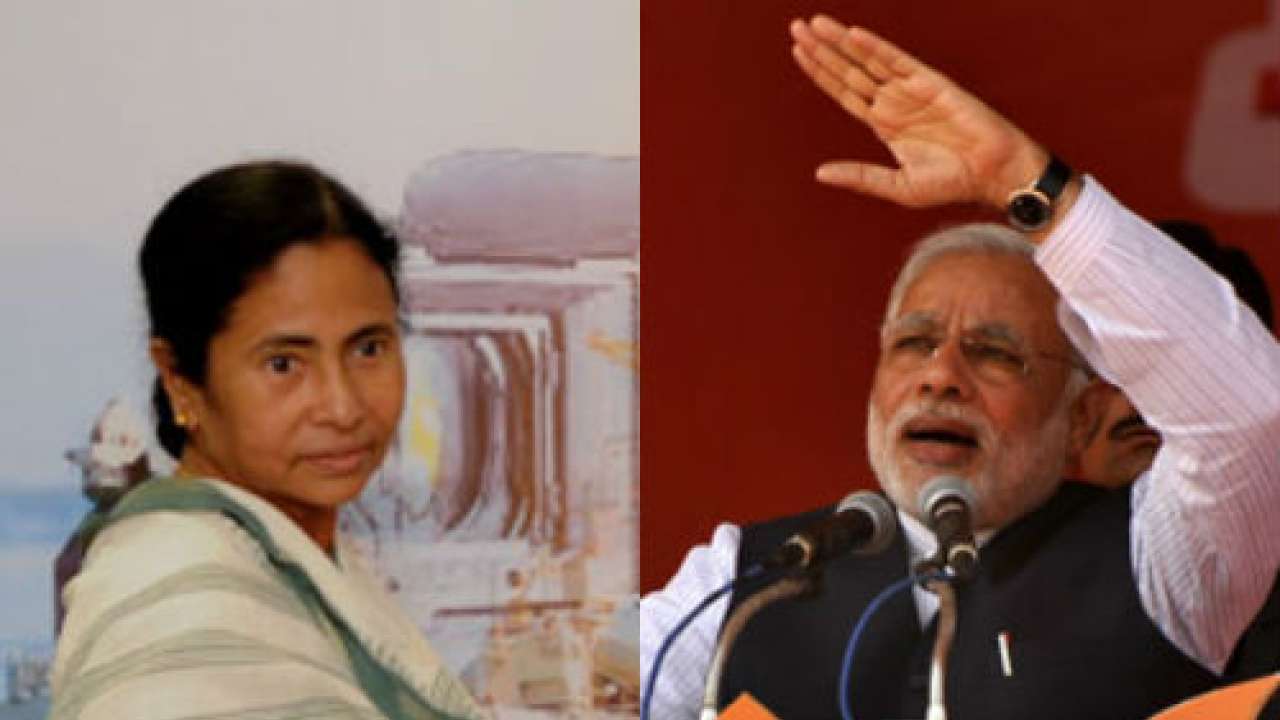
Language is not merely a play of semantics. Especially not when deployed by seasoned politicians eyeing positions of supreme power. Unfortunately, the politicians battling it out in the 2014 elections appear to be indifferent to the ominous portents their words convey to the electorate, particularly the vulnerable among them. The latest example in this genre of unmindful electoral language is provided by Narendra Modi, the Bharatiya Janata Party’s prime ministerial candidate.
Modi’s threats to deport Bangladeshi immigrants from Bengal if his government comes to power at the Centre, gives us reason to worry about the political and governance template he has in his mind. At an election meeting last week, charging Mamata Banerjee with pandering to Bangladeshi immigrants, Modi said: “I want to warn from here, brothers and sisters write down, that after May 16, will send these Bangladeshis beyond the border with their bags and baggages.”
To understand the pernicious implications of Modi’s remarks, we have to situate them in the history of Bengal, which occupies an important place in the evolution of the sub-continent’s communal politics. By the turn of the 20th century, Bengal had one of the largest concentrations of Muslims and also one of the worst records of communal violence. In the aftermath of the 1943 Bengal famine, the state witnessed the consolidation of communal ideologies later culminating in the Calcutta riots and the Noakhali violence in 1946-47. Each traumatic historic event — 1947 partition to Bangladesh’s 1971 war of liberation — brought waves of refugees to Bengal’s doorsteps, seeding subterranean communal tension. But such subliminal frictions never came to the surface.
During the Left Front’s hegemonic rule of 34 years, the state remained free from riots even as the rest of the country intermittently battled communal violence. But underneath the peace and the camaraderie simmered latent tension. Such divisive sentiments however — unlike in other parts of the country — could not manifest themselves through organised political platforms.
Is this fragile social/political contract about to be broken? A figure as deeply polarising as Modi — aided by intemperate voices emanating from the various factions of the Sangh Parivar — could well renew communal tension in a state which has experienced the pangs of Hindu/Muslim violence in the past. Media reports seem to suggest that the BJP — riding on Modi’s popularity — has sniffed blood in Bengal, where it is still to find a toehold. With a weak organisation and a 5-6% popular vote share, the BJP has always had a marginal presence in the state. In 1999, its alliance with the Trinamool Congress fetched the BJP two parliamentary seats — a tally not repeated since. Yet, pollsters this time are predicting a 15-16% high popular vote share. If true, that might give the BJP a leg-up in the state, something the party has been eyeing for a while.
The one reason for BJP’s renewed interest in Bengal — besides coalition politics compulsions — could be that communal polarisation seems to be deepening in the state. Police records reveal a spiral in communal clashes last year. Between February and August, there were 42 major incidents of communal clashes, a majority of these occurring in South and North 24 Parganas — both adjacent to Kolkata. The ruling Trinamool Congress has been criticised for playing ‘minority politics’, alongside a mushrooming of Muslim organisations and NGOs.
With his aggressive statements spiked with communal innuendos, Modi appears to be further sharpening these tensions; dangerous temptations that a prime ministerial candidate should surely steer clear of.